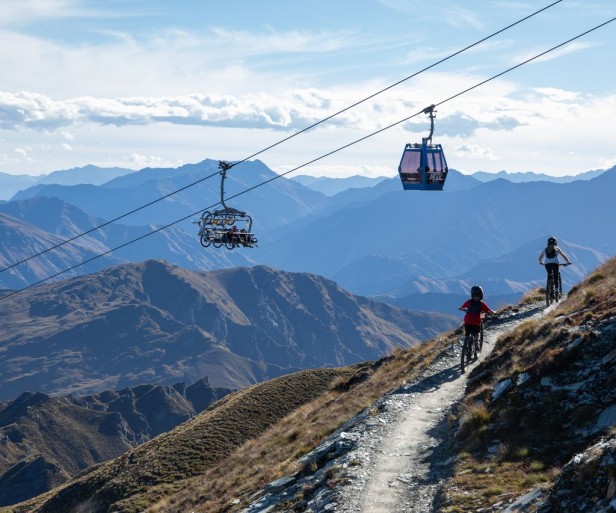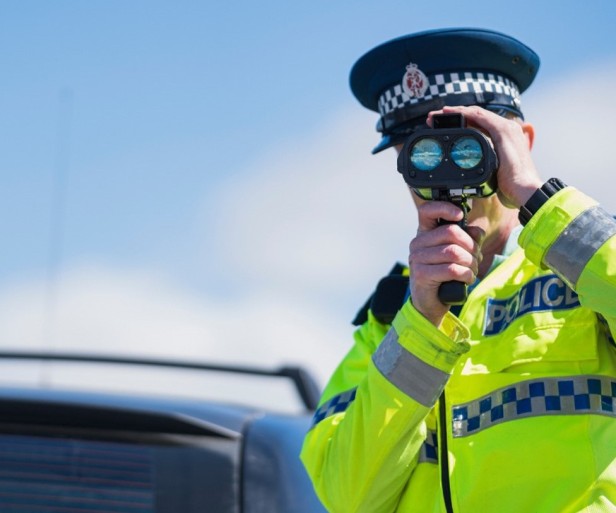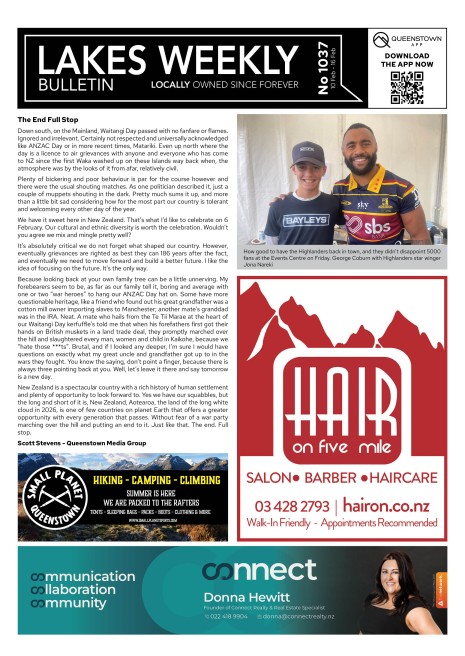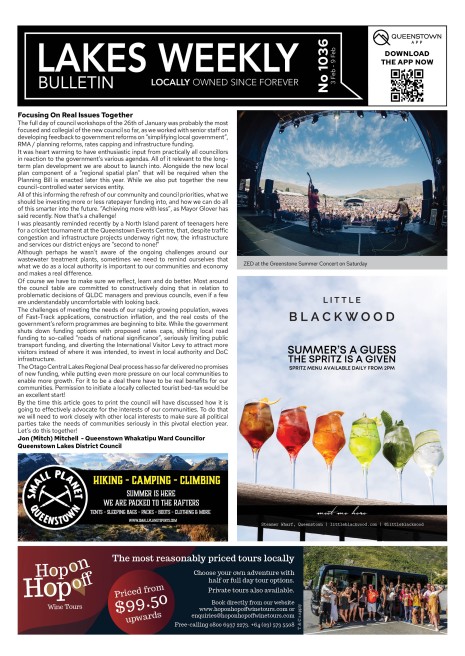Freedom camping free-for-all
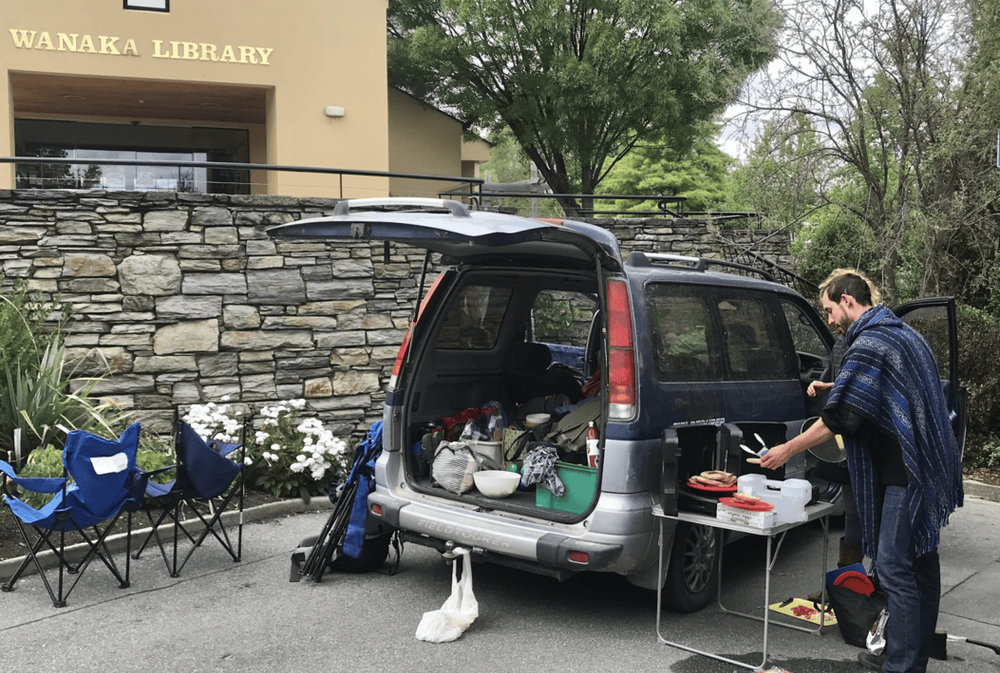
Freedom camping restrictions in this district are no longer being enforced after the bylaw on freedom camping was revoked by the High Court - following a legal case which may cost ratepayers more than $400,000.
A council spokesperson confirmed to the Wānaka App that QLDC has “paused enforcement” of the Queenstown Lakes District Council’s (QLDC) 2021 Freedom Camping Bylaw.
He also confirmed the High Court “formally quashed” the bylaw 2021 on Tuesday (November 5).
“The bylaw restricted freedom camping in a number of areas in the district. Without it those restrictions are lifted,” the spokesperson said.
He added that campers should not assume they can camp on any public land without checking if any other restrictions apply (such as restrictions under the Reserves Act regarding temporary and permanent accommodation).
The national Freedom Camping Act 2011 also requires that vehicles be certified self-contained to freedom camp and QLDC has continued to enforce this.
High Court judicial review
The judicial review ruled QLDC’s Freedom Camping Bylaw 2021 invalid, removing the restrictions governing freedom campers in this district - in particular where they could camp.
The New Zealand Motor Home Association (NZMCA) challenged the bylaw on the grounds it had paid too much attention to “irrelevant” issues, and that it was too restrictive.
In the High Court in Invercargill, Justice Osborne agreed, declaring QLDC’s bylaw invalid due to the unlawful influence and consideration of “irrelevant matters”, namely the economic impact on commercial campgrounds and the effects on private property values/amenity (such as the dumping of rubbish and waste affecting neighbouring land and streams).
Read more: What now for freedom camping
A costly defence
The Queenstown Lakes district hosts six times as many freedom campers per head of population as any other district in New Zealand - and this is one of the reasons freedom camping was recognised as a problem here.
Deputy mayor Quentin Smith told the Wānaka App the NZMCA had shown a “sickening” disregard for this district.
“Freedom camping in our district seven or eight years ago was out of control with residents unable to enjoy reserve areas at Lake Hayes, Shotover River, Lake Hāwea, and more,” he said.
“Our freedom camping bylaws and enforcement have worked effectively to contain and control the impacts of the freedom camping assault while retaining large parts of our district where self contained freedom camping was permitted.
“We make no apology for prohibiting camping within our residential areas and our prime reserves. It would be nice if the NZMCA actually came to see elected members rather than the aggressive, expensive legal assault they have chosen.”
The New Zealand Motor Home Association (NZMCA) challenged the bylaw on the grounds it had paid too much attention to “irrelevant” issues, and that it was too restrictive.
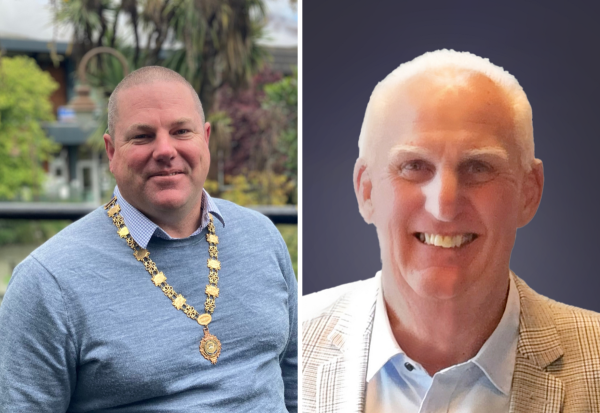
Deputy mayor Quentin Smith and NZMCA chair Bruce Lochore. PHOTOS: Supplied
The Wānaka App understands the council’s external legal costs alone in defending the case came to $176,000.
Quentin said that figure would not include staff time and internal legal work, and the likely overall cost to ratepayers may be more like $400,000-500,000.
NZMCA: ‘A significant outcome for members’
In a NZMCA board report for October 2024, association CEO Bruce Lochore called the court’s decision “a significant outcome for members”.
Legal costs to Queenstown Lakes ratepayers were “completely avoidable”, he said.
“Once again the council have wasted ratepayers’ money on a case they had no hope of winning. It was clear as a bell that they would never get it across the line – and we told them that. But they refused to listen and will have to cover their own costs as well as a portion of ours.”
He said he was confident the outcome of the judicial review “completely vindicates the association’s decision to challenge QLDC’s freedom camping bylaw”, adding it would “prevent other councils from making similar errors, enabling more reasonable opportunities for responsible campers to enjoy travelling New Zealand in self-contained vehicles”.
What now?
A workshop last week for elected representatives and council staff was held behind closed doors to enable council “to obtain confidential legal advice about its position”.
QLDC declined to share what was discussed at the meeting.
The council has previously said it will review signage around freedom camping. It also plans to appoint four freedom camping ambassadors in the Wānaka Ward, and push the message that there are 12 camping grounds in the region.
This week’s formal quashing of the bylaw was expected and “doesn’t change anything” in terms of council’s response, a QLDC spokesperson told the Wānaka App.
“We'll continue to update our dedicated Let's Talk page to share information with the community and visitors about our approach to responsible camping this summer, and the development of a new bylaw,” he said.
NZMCA did not respond to questions from the Wānaka App.


